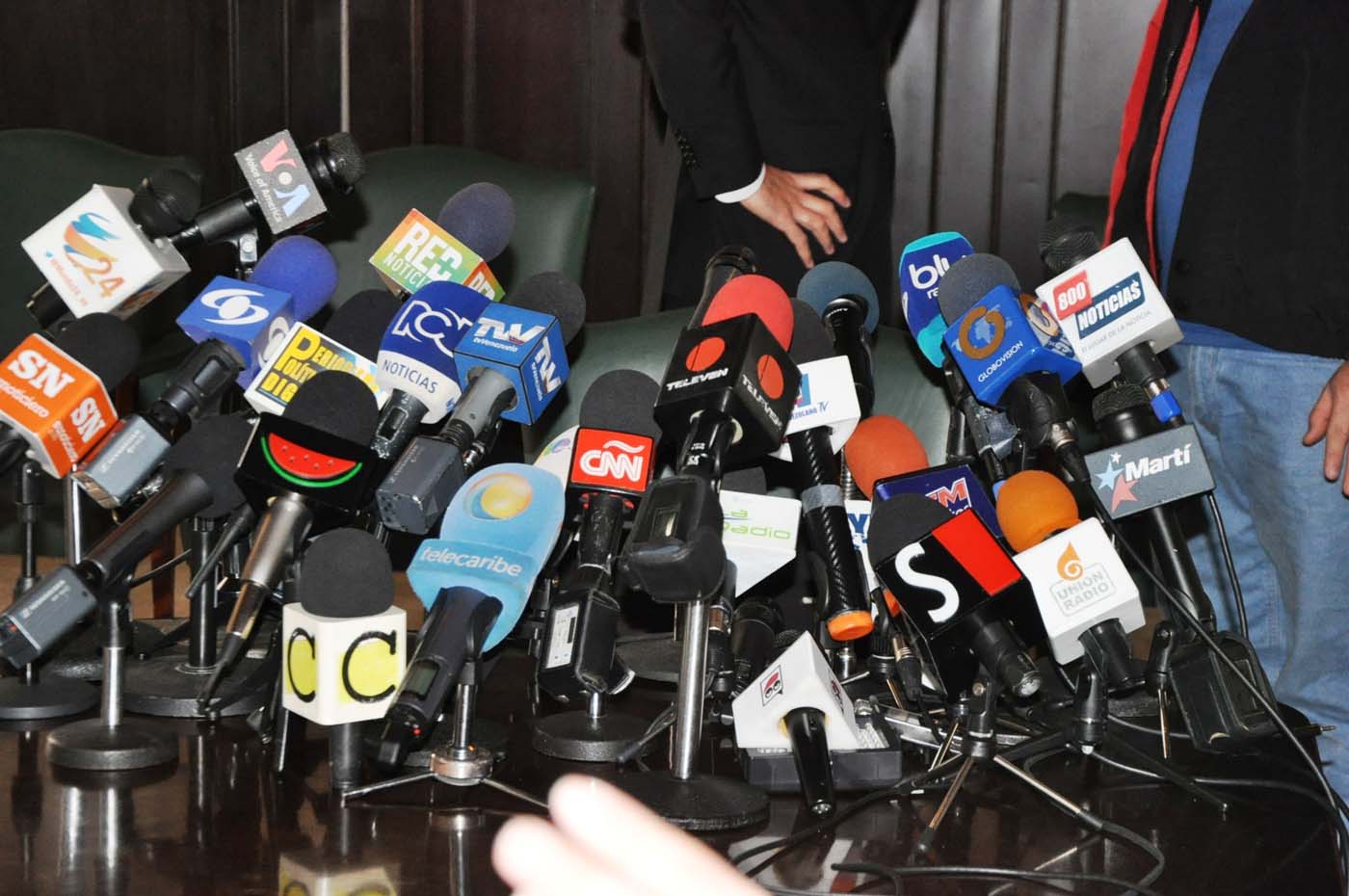Those winds brought these storms. The closure of media and the aggression against journalists did not just happen overnight. A judgment given by the Constitutional Chamber at the beginnings of the Bolivarian Revolution worked to form the basis of what over the years would be known as “communicational hegemony”.
More than just a judicial decision, it was a bomb against the freedom of expression. On October 9th 2000, a citizen turned to the Supreme Tribunal of Justice (T.S.J., by its acronym in Spanish) to request the tribunal to demand the late president Hugo Chávez that he grant him the right to reply, and the answer he received on June 12th 2001 would eventually mark the exercise of freedom of expression in Venezuela forever.
The general coordinator of the civil association Queremos Elegir (We want to Choose), Elías Santana, requested the T.S.J. intervention after Chávez and the director of Radio Nacional de Venezuela, Teresa Maniglia, deny him the possibility to answer the verbal attacks he had suffered on August 27th 2000 during the broadcast of the television programme Aló Presidente (Hello President), conducted by the head of state himself.
The Constitutional Chamber, with a presentation of the justice Jesús Eduardo Cabrera, not only rejected the request of this civil society representative, but took the opportunity to humiliate all the Venezuelan journalists. According to Cabrera’s reasoning, as Santana was a journalist that had a column in a national newspaper and a space in a radio station, «he lacks any right to reply or to rectification, since he can answer the President what he deems appropriate, both in his column as in the newspaper where he has it (…) or in the radio show«.
Further on, the T.S.J. specifies that «the right to reply and to rectification do not have it neither the media nor those who usually practice journalism in them, or those who have columns or programmes, or those who by ‘remitidos’ (paid content) trigger an adverse reaction. It is a right granted to those affected by the media information, and lack of public channels to answer or give their version of the news«.
From then on, the journalists of the country lost the possibility of exercising the right to reply, which is established in the article 58 of the National Constitution. In this context, the President is licensed to insult any journalist through all means at his disposal, and the individual concerned cannot answer on a basis of equality.
But the Constitutional Chamber did not stop there. “It is an attempt against the truthful and unbiased information to have a majority of columnists of one ideological trend, unless the media in their editorials or through their spokespersons, maintains and identifies itself with an opinion line consistent with that of the columnists and contributors”, the justices pointed out, interfering in the media editorial line.
In the same judgment, the T.S.J. justifies the contempt, vilification and slander laws. “The freedom of expression, although it is not subject to prior censorship, has to respect the rights of others, so that causes ulterior responsibilities for the issuer, in many cases shared with the vehicles of dissemination, especially when it is used for communicational terrorism, that aims to subdue people or institutions to public scorn”.
The Justices came full circle making a difference between freedom of expression and freedom of information, denying the right to reply for anyone who feels harmed by opinions. “These rights to reply and to rectification, can only be used by the person directly affected by the information (…) the right to reply or rectification is not a right aimed to refute opinions or to maintain a public diatribe”.
Once the gap between freedom of expression and that of information were established as alibi, the Constitutional Chamber concluded that “the facts attributed to the President of the Republic to request the right to reply, do not constitute inaccurate information or aggravations offloaded to the actors, but opinions”.
All this was said by the T.S.J. in 2001. The rest is history.
Extracto de la sentencia
“The Chamber considers that if Elías Santana or the Civil Association Queremos Elegir believe that they have been aggravated by the President of the Republic, they can file the proper actions, but being a journalist with a regular column in the newspaper El Nacional, and a daily radio show (…) who asks for the right to reply in his own behalf and on behalf of the legal entity of which he is spokesperson and for whom he speaks, lacks any right to reply or rectification, since he can answer the President what he deems appropriate, both in his column as in the newspaper where he has it, that it is also a national newspaper, or in the radio show, but may not be for this propose a separation between him and that of the Civil Association (…) for whom he also acts, since he is the spokesperson (…) In cases like these, that in the person of a columnist or journalist of the media, it is confused on him the representation of a legal entity, who also consistently declares to the newspapers by means of the journalist or columnist, situation known by the Chamber because it is related to communicational well-known facts, there can wrongly be a dichotomy conferring a right to reply or to special rectification for the legally represented person”.
